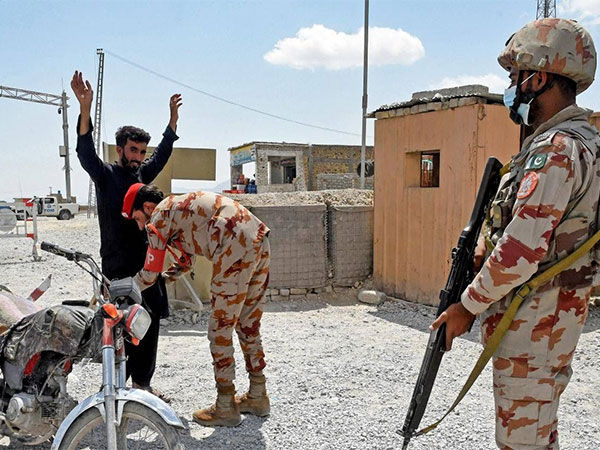
January 18, Balochistan [Pakistan]: A number of limitations have been put in place by Pakistani authorities in advance of the national gathering that the Baloch Yakjehti Committee (BYC) has scheduled for January 25 in Dalbandin to honor “Baloch Genocide Remembrance Day.”
Ata ul Munim, the Deputy Commissioner of Chaghi, issued an order warning government workers not to attend political rallies or organizations, citing the Balochistan Government Servants (Conduct) Rules of 1979. Department heads were instructed to submit infractions for BEED Act 2011 disciplinary action.
Additionally, according to The Balochistan Post, the government of Balochistan has imposed Section 144 for a month, which forbids public gatherings of five or more persons as well as the exhibition of firearms. In Dalbadin, transport firms have been urged to halt operations for a whole week. There has been no official confirmation, despite reports that formal notifications have been sent.
At the same time, a formal complaint was filed in Mastung against Mahrang Baloch, the chief organizer of the BYC, as well as other members of the group. The BYC referred to the accusations as “baseless” and emphasized that they were a component of a larger effort to stifle peaceful political expression and criticism. In recognition of her efforts, the people of Brahui, in the Charsar district of Dalbandin, placed stones on a mountaintop to form the words “Bakhairat Mahran” (Welcome Mahrang).
According to The Balochistan Post, the BYC condemned the FIRs and the restrictions, saying they were a part of a greater attempt to silence Baloch opinions. The organization accused authorities of selectively enforcing laws like Section 144 to quell peaceful protests, claiming that the state misuses the legislation to target the Baloch people because of their identity and opposition to ongoing persecution.
The BYC stated in a statement that hundreds of FIRs had been filed against its leaders and members since last year, many of which have been dismissed by courts as unfounded. In spite of this, new instances continue to emerge.
The BYC emphasized that such measures would not weaken the resolve or leadership of the Baloch people. Human rights organizations and the international community were urged to step in, describing these actions as “colonial” and “apartheid-like.”